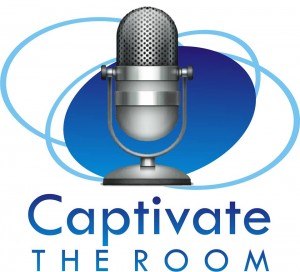10 Ways to Use Your Voice to Break Through the Noise and Catapult Your Career
One of the last things we think about when it comes to breaking through the noise, getting our message heard is improving our voice. I completely understand the focus on content and channels and marketing but I want to introduce you to the missing link, the most powerful piece you have that is also the most underused. Your voice! The voice is the tool that brings your message to life that has the power to affect the emotion that creates the connection that has the ability to make the impact you are looking for with your words. Voice training is integral for anyone in business who wants to make an impact and break through the noise to get ahead. In this article, I’ll give you 10 voice and presentation techniques related to your voice that will help you break through the noise.
First, breathing is essential. Breath to the voice is like fuel to the car, without breathing you can’t step into your voice power, connecting to your mind and body or speak in your true voice which is where the vulnerability happens.
Two, train yourself to breathe. It’s not truly a possibility to “turn on” breathing. I hear people say, “Remember to breathe.” That’s not going to happen, especially when the pressure is on. It becomes essential to train yourself to always be breathing. If you can train yourself to always breathe, then when you need the air the most you will have it. What we tend to do is take in air and dump it then speak or take in air and hold it in and then speak. It’s essential to constantly be taking in air as we speak to give us what we need to make an impact with our voice.
Three, pace is key. People tend to speak way to fast or they speak way to fast without any air and try to cram in too many words into one breath making them speak even faster. On occasion people will speak too slowly but it is usually too fast. Make sure your general pace is moderate. If you speak at a moderate pace then you can add in bits of fast and slow for affect but you can always be sure that you are going to be understood from a pacing perspective, that you are not going too fast for your listener to keep up.
Four, we don’t know what you know. One of the biggest mistakes people make when they present, both live and on camera is that they forget that we don’t know what they know. We are such experts at what we know and that’s great but when we present we have to remember that our audience is not the expert in the area, usually and so we have to make sure and select and present our words in such a way that they can understand our content. Even if the audience is in our field, they’ve not walked our path, they’ve not experienced our education and work experience much less our perception. Be the tour guide, let us know what you know without abbreviations or terms or phrases that we won’t fully grasp. If we don’t know what you’re talking about, you give us a reason to check out and not listen to you.
Five, get the words out. I’m not a big fan of the word articulation because I think that when people hear that word they over pronounce and that’s not authentic or necessary. What I like to think of is getting the words forward and out of your mouth. Most people, for a number of reasons related to the psychology of the voice, don’t let their words out. Far too many people let the words drop through the bottom of their jaw and that’s really what articulation is about, getting the words forward and out straight, not letting the words fall through the jaw or come out of the nose or even worse stay in the back of the throat. What getting the words out requires is dropping your jaw and that can be facilitated by yawning a few times before you speak to loosen up those jaw muscles. It also requires the words coming straight out which can be accomplished by stretching the muscles around the mouth forward. If we stretch the muscles forward, almost like puckering up, we create a path for the words to slide straight out, almost re-direct them more forward. By utilizing these two exercises alone, individuals can get a cleaner version of their sound, be more understood and step into voice power.
Six, adding stress or value. Right in line with we don’t know what you know is stressing of words. I like the term adding value a little better because that’s what we are doing, adding more value in certain places than other places. When you are speaking, no matter to whom and no matter what venue, it becomes important for you to let us know what is important to you and what we need to know is important to us. We add extra emphasis to words to do this. Far too many people don’t add enough emphasis or value to enough words and that can result in flat lining but it can also result in the audience missing the message. We don’t know what’s important, you have to tell us. We also can connect to your passion and your authenticity when you add value to certain places in the story or presentation. The entire core of vocal variety lies on the stressing of words but the stresses must come first. Once we have the stresses we can then add different tools of vocal variety to enhance these stresses and by the choices of variety we make we can then start affecting the senses of the audience which in turn affects their emotions and connections are made.
Seven, authenticity, talk to us not at us. Authenticity is the big word of the moment, everyone is talking about authenticity and I think that’s great. I’ve seen the pendulum swing from being “on” to being real and I like it. But what is authenticity and how do you achieve it? Well, first, authenticity is being you, the real you, not put on, not scripted, just you. Easier said than done because when we go live, especially in front of the camera, everything gets weird and we start thinking about everything but being ourselves. We start focusing on the words, the way we look, the way we sound and we start talking “at” our audience. As soon as we start focusing on everything but our connection to our message, we become inauthentic because we disconnect from our self. So, the key is to forget about all of that other stuff and talk to us, not at us.
Eight, be unpredictable. One of the best ways to lose your audience is to be predictable. What I mean by that is to say everything the same. If you deliver your content, your message at the same pace, volume, pitch with little or no variance you are going to be super predictable. Once we know what you are going to do, we don’t have to listen to you anymore because you are no longer engaging us, captivating us. In real life we speak in a more unpredictable way, we use more vocal shifts, more highs, lows, fast and slow and beyond. But, when we get caught up in presenting and nervous and content and all the things we are thinking about, we do what I hear people call “flat line” which is really, be predictable. Every 90 seconds the brain tells us to check out, if you are predictable, you give us full permission to do so. So, with that said, we need to speak in presentation, no matter where or when, more like we do in real life, as unpredictable as possible. Unpredictability comes from variety, highs, lows, fast, slow, pauses and all of that starts with the stressing of words. Find what you are adding value to and then add a variety of voice techniques to those places so you will be unpredictable and captivate your audience every time.
Nine, the words are everything and they are nothing. Another huge mistake I see far too many people make is getting overly concerned, connected to and bogged down in the words. I have a saying, “The words are everything and they are nothing.” The words are important, they are the message but it is the way in which we bring them to life that affects and captivates our audience. If we give all the power to the words by focusing on them solely we are completely in our head and that means we are working only out of our head. The mind, body and voice must all be connected. We have to connect to the message, the passion of the message and release the words in order to fully connect so that our audience can connect to us. This is one of the main reasons I don’t like scripts, they lend themselves to getting completely bogged down in the words. Think about the message, you will know the words if you know the message.
Ten, use stories. One of the best ways to captivate your audience is to really understand how to and use stories rather than facts every time you can. Now quite often you have hard core data that you have to deliver and as a result of that you can’t really tell stories, but start playing around with stories as a way to convey your message. People connect to experiences because experiences are full of content that connect to the senses. It is the connection to and stimulation of the senses that sparks emotions, emotions are what we are looking for. In stories we tell relatable pieces of our lives that people can connect too. But, always remember to select your stories based on what your audience needs at an emotional level. Great speaking and great storytelling require the same thing and that is they are presented to be about the audience, not about the presenter. The stories you tell are not being told to make you look good, they are being told to meet your audience’s needs.
There are so many tips and techniques that help develop the power of stories, speaking and stepping into voice power. However, these ten listed above are major game changers. If you can add in just a few of these techniques you will be setting yourself apart from the noise. I’ll assure you, far too many people are not doing these techniques and that is why they are struggling to get above the noise, to set themselves apart. I have no doubt that the voice is the missing link, the piece that will set you apart from the others because I’ve seen it happen over and over. I encourage all of you to step into your voice power and set yourself above the rest, voice work really does give you an unfair advantage.
If you need any help along the way don’t hesitate to reach out to me at www.captivatetheroom.com 
